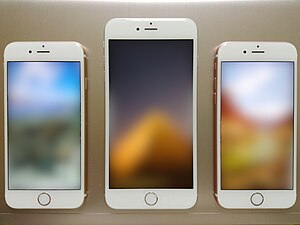
Mobile phones are a valuable communication tool with many applications in development, with benefits for public health and livelihoods as well as in personal communication.
Mobile phones, also known as cell phones or smartphones, have revolutionized the way we communicate, work, and live. These handheld devices allow us to stay connected with others, access the internet, and perform a variety of tasks from anywhere, at any time.
The first mobile phone was invented in 1973 by Martin Cooper of Motorola, and it weighed around 2.5 pounds. Since then, mobile phones have evolved dramatically, becoming smaller, faster, and more capable with each new generation.
Today, mobile phones are an essential part of our daily lives, with an estimated 6.4 billion people around the world owning one. These devices allow us to make calls, send text messages, and access the internet to stay connected with others. They also come with a range of features such as cameras, music players, and GPS navigation systems.
Mobile phones have also transformed the way we work, with many people using them to stay connected with colleagues, access work emails and documents, and manage their schedules. They have enabled remote work and made it possible for people to work from almost anywhere in the world.
In addition, mobile phones have had a profound impact on industries such as entertainment, with many people using them to stream music and videos, and gaming, with many mobile games now available for download. They have also impacted the field of education, with many students using them to access online resources and collaborate with classmates.
Examples[edit | edit source]
- SMS in development
- IVR in development
- Call centers
See also[edit | edit source]
- Grameen Phone
- LCA of cell phones
- Mobile phones in development and disaster management
- Saving a wet mobile phone